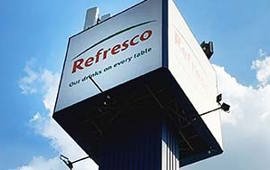Tuesday, 24 February 2026
Researchers in Singapore use broccoli for beating bowel cancer
The team has developed a probiotic using a genetically engineered version of E. coli Nissle, a harmless Gram-negative strain of bacteria found in the gut. Researchers at National University of…

The team has developed a probiotic using a genetically engineered version of E. coli Nissle, a harmless Gram-negative strain of bacteria found in the gut.
Researchers at National University of Singapore (NUS) have turned a humble cocktail of bacteria and vegetables into a targeted system that seeks out and kills colorectal cancer cells. The team has developed a probiotic using a genetically engineered version of E. coli Nissle, a harmless Gram-negative strain of bacteria found in the gut.
The mechanism of action of the engineered bacteria is to attach to a protein called heparan sulphate proteoglycan on colorectal cancer cells. The bacteria then secrete an enzyme that transforms a small molecule from broccoli (glucosinolates) into a potent anticancer agent (sulphoraphane). The bacteria do not bind to healthy cells, nor are the healthy cells affected by the toxin.
During their experiment, the researchers observed that the probiotics-broccoli extract reduced tumor volumes by 75 percent in mice with colorectal cancer. The researchers envision that the probiotics cocktail could be used as a dietary supplement for preventive care, or to reduce tumor recurrence after surgery.
Technology
Australian Medical Bodies Push for Compulsory Health Star Labelling
Feb 24, 2026 | Australia
Tim Hortons Singapore Secures Majlis Ugama Islam Singapura Halal Certification Ahead of Ramadan
Feb 23, 2026 | Company News
Refresco Adopts Sidel’s EvoBLOW Laser to Redefine PET Lightweighting
Feb 23, 2026 | Company News
Food Testing
Australian Medical Bodies Push for Compulsory Health Star Labelling
Feb 24, 2026 | Australia
Tim Hortons Singapore Secures Majlis Ugama Islam Singapura Halal Certification Ahead of Ramadan
Feb 23, 2026 | Company News
More Popular
Nestlé Research Shows NR and NMN Boost NAD+ and Support Microbiome
Feb 24, 2026 | Nutrition
Cargill Partners with Kokomodo to Explore Cell-Based Cacao Innovation
Feb 24, 2026 | Company News
Australian Medical Bodies Push for Compulsory Health Star Labelling
Feb 24, 2026 | Australia




